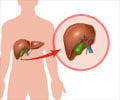Last year almost 100 people died in the UK while waiting for a liver. But as it happened more than 20 per cent of the recipients in 2008-09 were alcoholics.

In 1997/98 just 94 former alcoholics were given a liver transplant representing 14 per cent of the total. Overall, 1,449 people with alcoholic liver disease have been given transplants in the UK in the last 12 years.
Guidelines state that alcoholics undergoing the operation must have been abstinent from alcohol for at least six months and be considered a low risk of returning to drinking after a transplant.
Some have questioned whether livers are being allocated fairly.
Professor Nigel Heaton, the surgeon who performed a liver transplant on alcoholic footballer George Best, said at the time that new measures were needed to identify patients likely to abuse alcohol after their operations so that medical staff could make an assessment as to whether there were more suitable candidates.
'If you knew someone was going to be recidivist (relapse), you wouldn't take them on for a transplant,' he said.
Advertisement
“The health service does not stand in judgement over the people it is being asked to care for. Everyone has the right to be treated fairly and this is what the public expects and receives.”
Advertisement
He said: 'In addition each centre has to have the involvement of an alcohol/addiction service and the patient needs to have been seen by members of such a team with support given for their addiction and a likelihood of recidivism being included in the decision to transplant.
'An individual doctor cannot refuse treatment to a patient but each case is discussed at a MDT meeting and if the MDT decision is not to transplant then the patient is refused.'
The debate could become intense in the days to come and new norms evolved perhaps.
style="mso-special-character: line-break">
Source-







